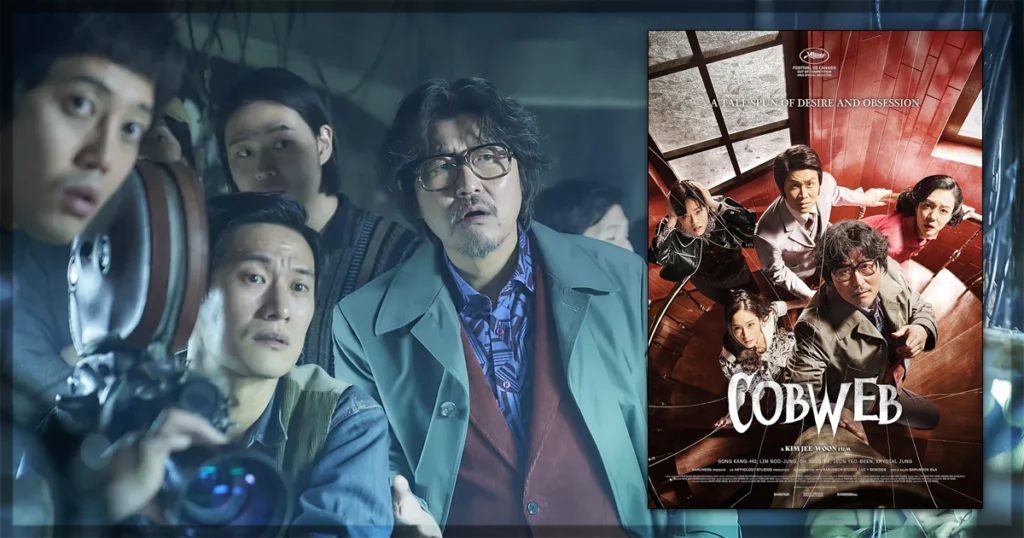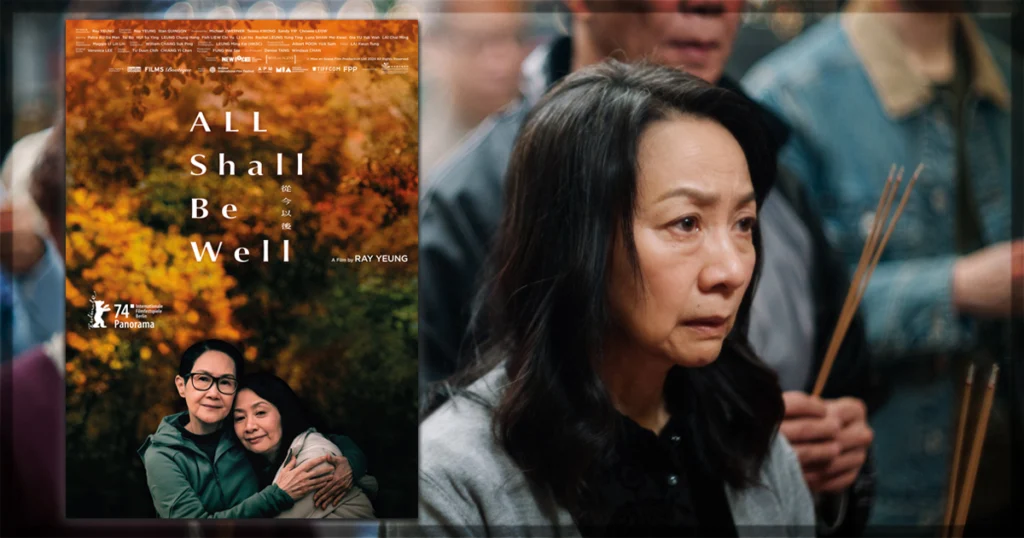Road trip films have always been a staple of American cinema, and Emma Westenberg’s new feature sets out in this nostalgic vein as she tackles the highs and lows of family bonds. In Bleeding Love, which had its Scottish premiere at the Glasgow Film Festival after an earlier 2023 South by Southwest world premiere, Scottish screen legend Ewan McGregor and his real-life daughter Clara McGregor play a father and daughter on a road trip across the deserts of the American West. The purpose is not immediately clear, though the father’s attempts at jocularity are strained, and the daughter’s resentment is palpable in a general twitching restlessness. Soon, a picture emerges: after a life-threatening overdose, the daughter is being closely watched in case her addictions resurface. She is adamant rehab will do her no good and that she can take care of herself; her father – a recovered, or recovering, addict himself – remains elusive as to their final destination, mentioning vague details about a friend’s place in New Mexico where she can work on her art without substances.
Neither father nor daughter are named characters, a choice that seems borne of making the story more universal, but Bleeding Love stumbles under the weight of its star casting. Watching real-life relations play similarly related characters – be they parents and children, spouses, or further extensions – has consistently attracted and delighted audiences. From father and daughter Ryan and Tatum O’Neil in Paper Moon to ex-partners Juliette Binoche and Benoît Magimel in The Taste of Things, watching two or more people with a genuine connection play out a fictionalized scenario naturally draws audience curiosity. Even Stanley Kubrick knew the power of this appeal: he famously first wanted Steve Martin for the leading role in Eyes Wide Shut, only going off the idea when he decided the film would be more effective if he found a married acting couple, both in the spotlight, for the characters of Bill and Alice.
How does a film change when you know there is a life beyond? The fact that these professional performers play characters with (often) little to do with their real selves is immaterial. It is hard to create a believable everyman when the subject has been in the press for years if not decades. Both McGregors have adamantly stated in interviews that Bleeding Love has no connection to their lives or they to their characters. However, it is hard not to separate their unnamed figures from statements both have made about their lives, and such a film feels designed to invite such extra-textual comparisons.
Addiction is a thorny issue in film, as storytellers’ judgments can cloud the psychology and physiology of addictive behaviors, substances, and relapse patterns. Thankfully, Bleeding Love passes a nonjudgmental eye over the daughter’s substance abuse struggles and the father’s openness about the continual work he does to stay sober. These compulsions are framed not as character flaws – however frustrating and incomprehensible they seem to outsiders in the film and audience who may not have lived with addiction – but as horrible facts of life they must grapple with daily. Sometimes, they come out stronger; sometimes, the road is bumpier.
Clara McGregor has openly spoken about her Xanax addiction and 2019 stint in rehab, and Ewan McGregor has been vocal and effusive in his support of her seeking help and recovery while sharing his own struggle with alcohol in the 1990s.
The father-daughter tensions in Bleeding Love also feel wrought from real headlines. In the late 2010s, reports circulated that Ewan McGregor faced tensions within his family – namely from his four daughters, of whom Clara is the eldest, by his first wife Eve Mavrakis – after leaving Mavrakis and beginning a relationship and new family with Fargo co-star Mary Elizabeth Winstead. More recent updates from the extended McGregor family suggest its members have reconciled, but the daughter’s barbed questions about the father’s new family are reminiscent of the tabloid fodder. No other characters in the on-screen family are shown, though the new wife appears as a voice on the other end of the phone; the emotions Clara McGregor projects as the daughter pushes past her comfort zone and forges new connections – only to find old ones hiding their own secrets – are expertly wrought.
Both McGregors are charismatic and natural actors working very comfortably together, even as the scenarios they are forced into feel somewhat inorganic. Their accents are mismatched – Ewan McGregor’s never quite settling into convincing American, despite his efforts. This is strange at first, but as the film progresses, the disparity in cadence speaks to a large gulf between them that they must overcome as they learn more about the other.
With the story’s and characters’ similarities to real events, this real-life familial connection unfortunately proves the main draw and connective glue in Bleeding Love. Its paper-thin happenings and supporting characters give the McGregors little to work off outside each other; with a sparkling exception early on, most of the characters suggest archetypes of disenfranchised rural America rather than flesh-and-blood individuals with their own hopes, heartaches, and dreams.
Ultimately, Bleeding Love derives most of its power from its star casting, not its substance. While a film does not need to redefine road trip cinema, on-screen father-daughter relationships, or depictions of addiction, a heavy hand of directorial guidance steers two characters’ journeys of self-discovery with undue force to a conclusion that, while affecting, is not wholly earned. The film is by no means offensive or unenjoyable, but one wonders what could have been with more trust in the journey, not the destination.
Bleeding Love is now playing at the Glasgow Film Festival. It’s also available to purchase or rent on digital.
Are you interested in this film? What do you think of Bleeding Love? Let us know on X @MoviesWeTexted.
You might also like…
‘Cobweb’ Review: Kim Jee-woon’s Black Comedy on the Horrors of Filmmaking
‘All Shall Be Well’ Review: Yeung’s film is a rich and satisfying drama on acceptance (Berlinale)



